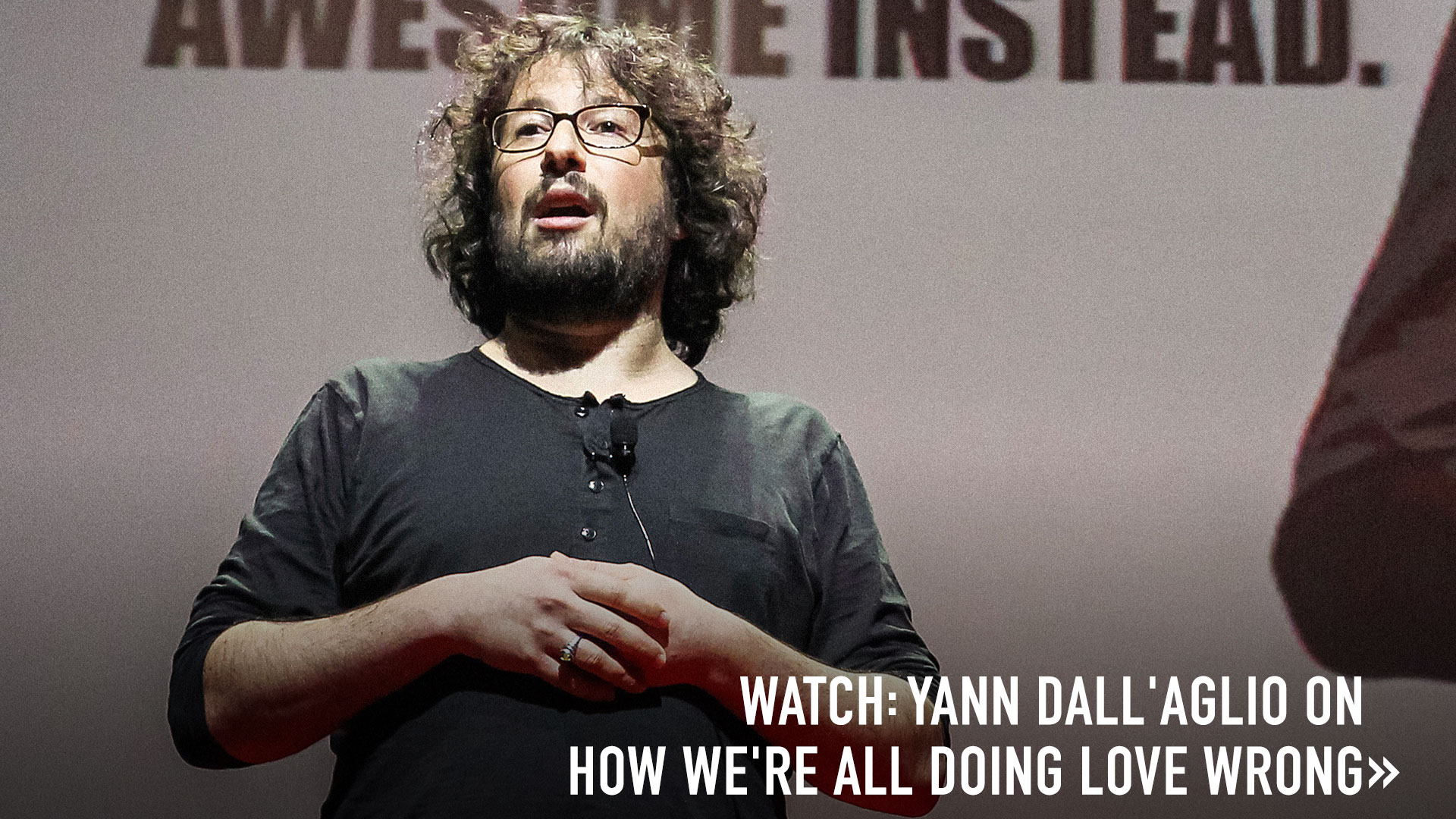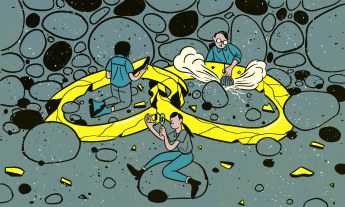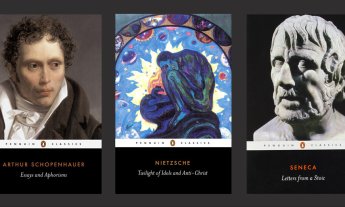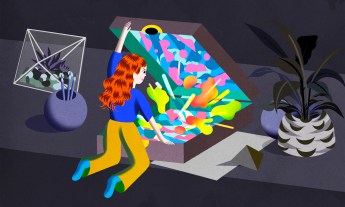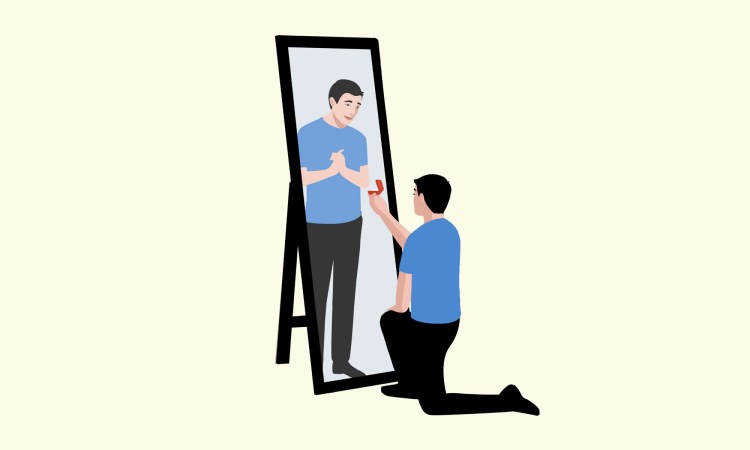
A philosopher makes the case for a less than perfect union.
Philosopher Yann Dall’Aglio (TED Talk: Love — you’re doing it wrong) believes that the quest to be the perfect lover is a distinctly modern delusion — and he warns that it erodes the very relationships we seek to strengthen. “It leads to couples obsessed with performance who will break up, just like that, at the slightest underachievement,” he says. We should forget about performance, he says, and instead ease into an imperfect relationship. Here’s why:
The 700-year journey to love — and insecurity. Dall’Aglio observes that love, before the age of the Renaissance, was a communal affair. “You had a specific part to play according to your sex, your age, your social status, and you only had to play your part to be valued and loved by the whole community,” he says. “Think about the young woman who must remain chaste before marriage. Think about the youngest son who must obey the eldest son, who in turn must obey the patriarch.” But in the 13th century, Renaissance thinkers in the West began to challenge individuals to question and discard these stifling traditions. “Now individuals are free to value or disvalue any attitude, any choice, any object. But as a result, they are themselves confronted with this same freedom that others have to value or disvalue them.” Individuals began to compete for the affection of others. And this struggle gave rise to a deep-seated insecurity. “On the free market of individual desires, I negotiate my value every day,” he says. “Hence the anxiety of contemporary man. He is obsessed: ‘Am I desirable? How desirable? How many people are going to love me?’”
Lovesickness is actually at the core of consumer culture. With every purchase, modern-day shoppers have an opportunity to broadcast our personalities, wealth and good taste to potential lovers, says Dall’Aglio. “We only accumulate objects in order to communicate with other minds,” he says. “We do it to make them love us.” In his eyes, what appears to be an unseemly attachment to material things is in fact a longing for a deeper connection: “I want to seem perfect so that another can love me.” Then, our potential partners are held to the same exacting standard: “I want them to be perfect so that I can be reassured of my value.” In fact, he points out, we would sooner shred our belongings to win the affection of others. “Nothing could be less materialistic, or more sentimental, than a teenager buying brand-new jeans and tearing them at the knees because he wants to please Jennifer,” he says.
The real art of seduction begins with self-mockery. Dall’Aglio believes there’s a way out of this frantic race for affection, and it begins with a humbling admission: Actually, we are all impostors — and that’s okay. “Yes, I’m useless,” he insists. “But rest assured, so are you!” That admission alone can release us from the desperate competition to prove ourselves worthy of love, opening the way to a less frantic form of seduction that embraces vulnerability. And how might this play out in a relationship? Via a “poetry of deliberate awkwardness,” self-mockery, a form of humor that provides “one of the best means for the relationship to endure.” Why? Because humor enables a couple to acknowledge one another’s faults while simultaneously making light of them. “I think that becoming aware of this general imposture that concerns all of us would ease our love relationships,” he says. It may deflate our egos, but it could spare us from a lifetime of angst and heartache.
Illustration by Anna Parini for TED.

